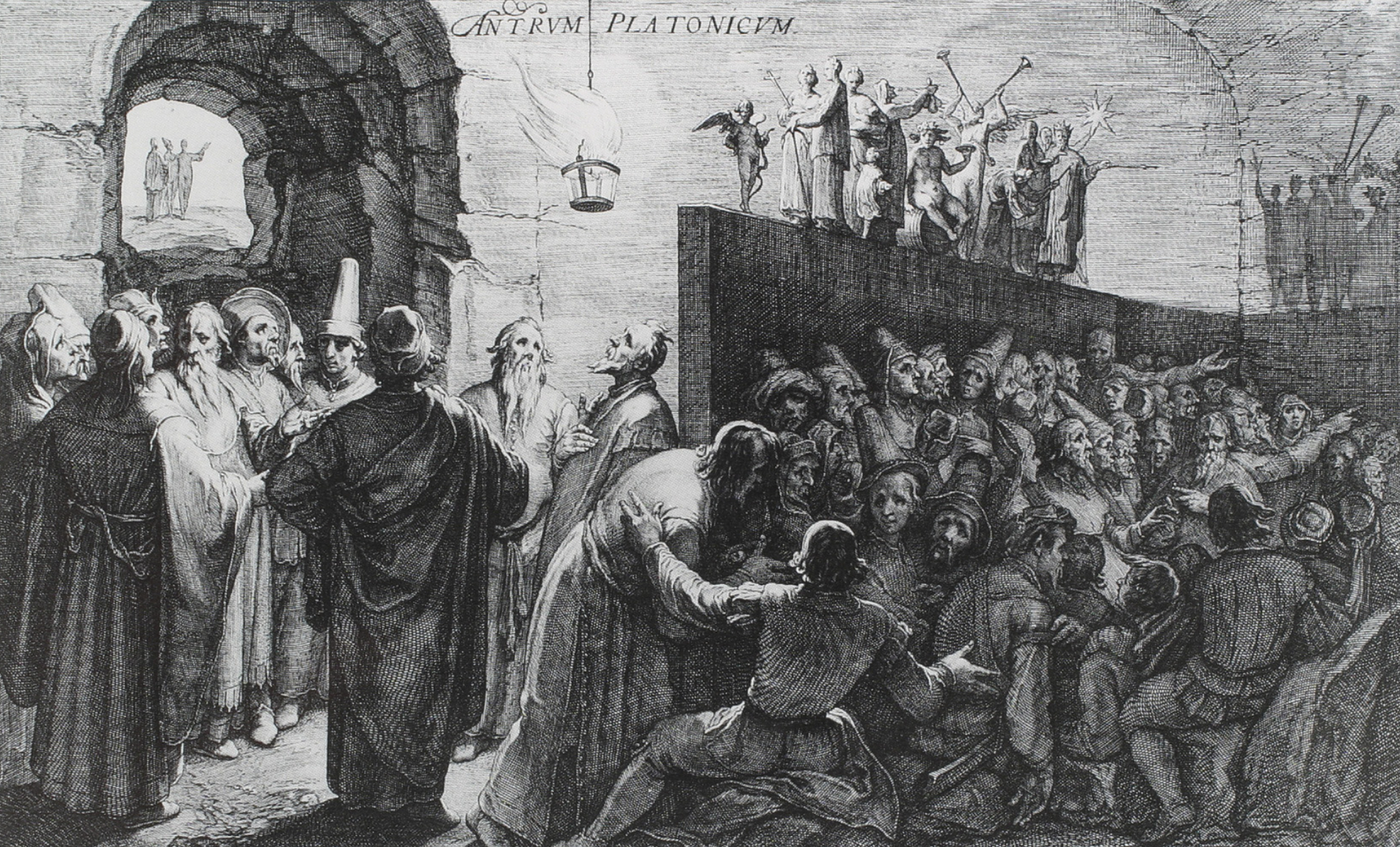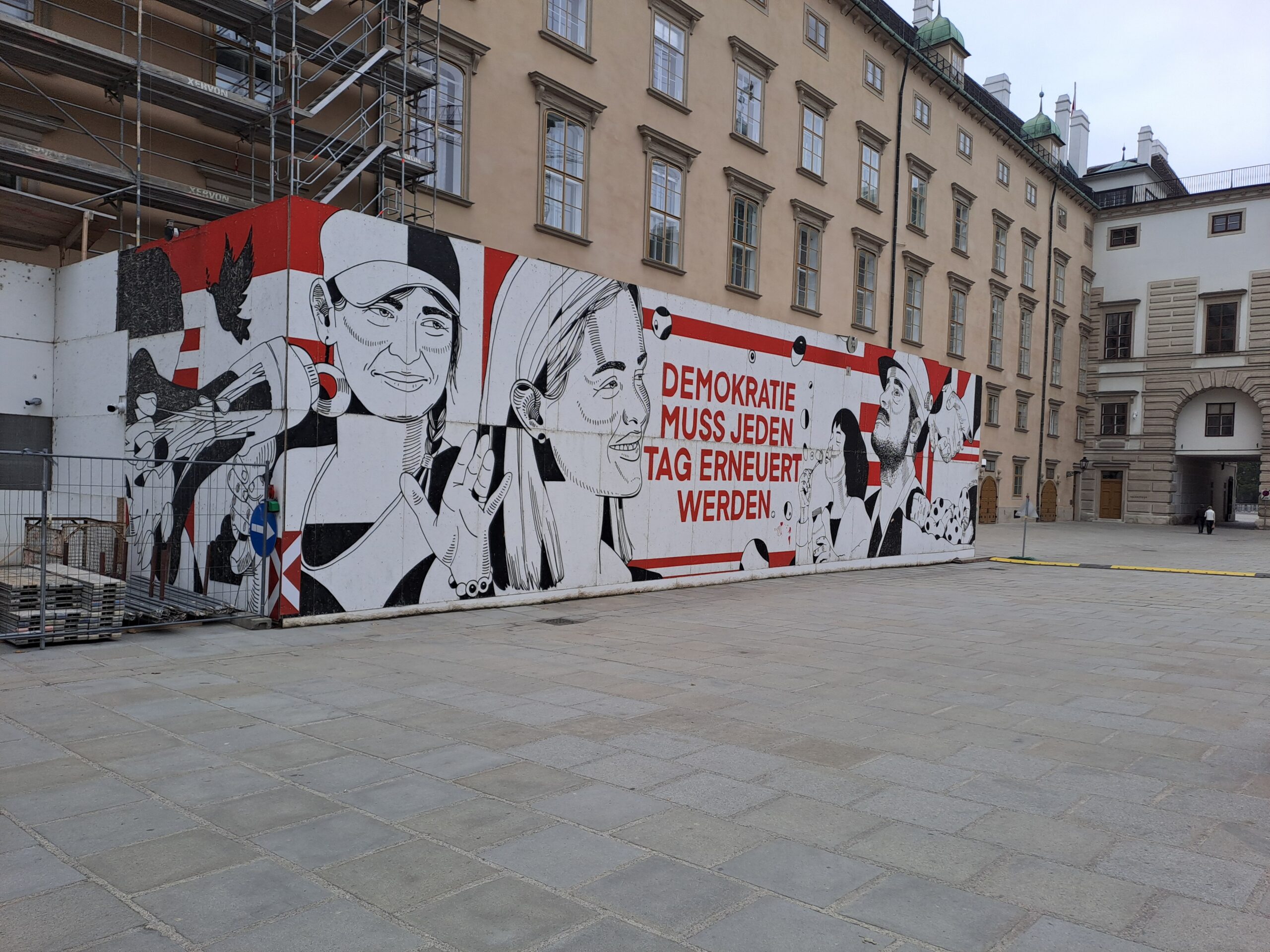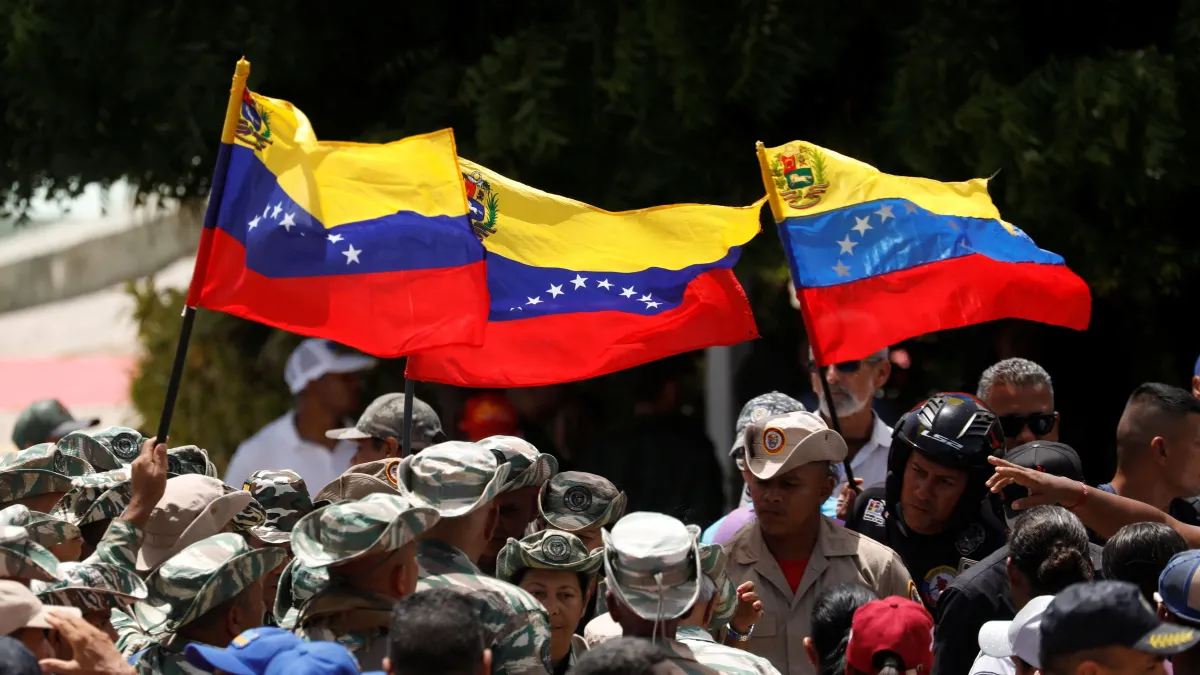In various media sectors in Brazil, journalists have created and perpetuated a false distinction between ‘political’ and ‘economic’ decisions in order to mask the bias of their political opinions.
For those who watch (or read) the news in Brazil, it should come as no surprise to read (or hear) the terms ‘political decision’ or ‘economic decision.’ Trump’s tariffs, for example, is constantly described as one of the greatest examples of a ‘political decision’, which aims only to serve the individualistic interests of the current resident of the White House. In this case, we see headlines such as those on CNN Brasil explaining that ‘Trump’s decision has a political slant, according to an economist’1.
During Bolsonaro’s years in office, these terms were used extensively by journalists, who divided the government into two main wings: one economic and one political. At the time, the head of the economic wing was the economist Paulo Guedes, Bolsonaro’s super-minister of the economy. On the other side, there was a conglomerate of ‘professional’ politicians, many from the so-called ‘Centrão’ (‘Big Centre’, in a literal translation, which refers to ‘centrist’ parties which don’t have an actual ideology, but run on any subject that gains their votes). Thus, it was possible to read, for example, that ‘Guedes has been pressured to increase investment spending in the coming years by the political wing of the government’2. The economic advances promised by Jair Bolsonaro’s liberal campaign were constantly slowed down or interrupted by the so-called ‘political wing’, which did not allow the ‘economic wing’ to do its job.
These factions remain alive in Lula’s new government. Globo’s (the biggest media group in Brazil) political commentator Gerson Camarotti, for example, wrote a column stating that the reversal of the decision to increase the Financial Transactions Tax (IOF) was clear evidence of the split between the ‘political and economic wings’ of Lula’s government3. In this debate, the so-called economic wing is still referred to using the synonym ‘technical decision’, which further differentiates it from political decisions (which are portrayed in a less favourable light).
Despite the normalisation of this vocabulary in traditional media, as a political scientist, I find it strange that the distinction between ‘politics’ and ‘economics’ is constantly perpetuated in a practical context such as the government of a country. Furthermore, when paying attention to the rhetoric used by journalists when referring to the so-called ‘political wing’ and ‘economic wing’, the adjectives and synonyms used to describe the actions of each wing, it is even more intriguing to realise that these terms are, in practice, used to differentiate between a group that has well-designed, thought-out, reflected, technical plans, or simply ‘plans that work’ (read: the economic wing) and another that is affected by public opinion (or rejects it entirely), more emotional, less rational, ideological, or simply ‘does not work’ (read: the political wing).
I would like to ask those who listen to this rhetoric whether they also find this dichotomy strange, considering that, in practice, we are talking about the actions of people who hold political offices, having been elected or directly appointed to implement government policies (based on agendas defined during or after their elections).
To the maxim that ‘everything is politics’, there are those who respond with ‘if everything is politics, then nothing is politics’, which I believe to be a fair point. But specifically, when it comes to politicians, wouldn’t you expect them to be doing… politics? In fact, isn’t it expected in liberal democratic systems that people elected by popular vote follow the will of the people, or at least follow the plan proposed to voters at the time of the election? After all, doesn’t the term ‘economic policy’ combine both fields (political and economic)?
Scientific fields are more universally divided between the so-called ‘exact sciences’ and ‘social sciences.’ Or, the so-called ‘hard sciences’ and ‘soft sciences’, which represent the exact and social sciences, respectively. The terms refer to the idea that the fields of mathematics, physics, or biology have scientific rigour and are therefore more accurate (for some, even infallible) and, on the other hand, that fields such as history, philosophy, and politics, which, many think, do not have as much scientific rigour, nor can be accurate (and therefore tend to be more fallible).
In my musings on the division of sciences in the academic field, I am constantly struck by how ‘exact’ some sciences are. During the pandemic, as was seen globally, until a certain consensus was reached on the best methods, many disagreements arose (not only among doctors, but also among scholars). Furthermore, even when a more general consensus was reached (such as that chloroquine did not cure Covid or the reaffirmation that antibiotics do not kill viruses), there were still unexplained outliers such as adverse reactions to vaccination or certain medications, or even the development of the disease itself in different people who had different physical conditions. In physics, theories are proposed to make sense of things that, according to existing theories, do not make sense (as is the case with dark matter and, for a long time, black holes themselves). Mathematics itself only makes sense within its axioms, which are assumptions, meaning that ‘mathematical truths’ cannot necessarily be interpreted as ‘absolute truths’.
In the same vein, the humanities (which also include economics, incidentally) are just as exact. There is consensus and there is dissent. Theories are reformulated based on new evidence, and no ‘truth’ is absolute. Therefore, no matter how popular it may be (even among scholars), the differentiation (and often the hierarchisation) of scientific fields between those that are ‘exact’ (and therefore infallible) and those that are ‘imprecise’ (and therefore more prone to failure) is an illusion.
Establishing this common starting point for the sciences, one would expect that economics, in its various forms (research, decision-making, opinion), would also be considered as something that could be re-evaluated. But, perhaps better said, it would not be seen as something essentially ‘better’ or ‘more accurate’. Especially when it is conducted by political figures.
This raises the question: who has an interest in differentiating between things that cannot be differentiated? Or, who has an interest in selling the idea that economic decisions are more ‘correct’ than (other) ‘political’ decisions?
Simply elevating these ‘political decisions’ to the level of something ‘technical’, ‘precise’, and often ‘good’ is an attempt to mask a political bias that is at the root of the opinion formation of the journalists (or their newsrooms) in question. By differentiating between an ‘economic’ and a ‘political’ wing in the government, the bias of the newsroom is denounced in a veiled manner. It can be seen that the measures proposed by the so-called ‘economic wings’, or even ‘economic decisions’, align with what is normally seen as positive by a common economic bias: that of a neoliberal nature (which, incidentally, is a political-economic ideology).
In a nutshell, what is understood as neoliberal thinking is that which defends free markets, minimal state intervention in the economy, and so-called economic freedom. Furthermore, it is often associated with policies (!) of deregulation, privatisation, and reduction of expenditure (or ‘spending’) on the welfare state.
When political decisions go in this direction, they are referred to in Brazilian news as ‘technical’. When there are figures in government who have an interest in pursuing this type of policy but are prevented or influenced to follow another economic direction, then it is said that there has been ‘interference from the political wing’. In fact, even the term for ‘politics’ in Portuguese (política) in this context is used with the meaning of its corruption: ‘politicagem’ (or something close to ‘politicking’, but in a broader sense). And what is the difference between ‘política’ and ‘politicagem’? We can use a simple dictionary entry for this. According to a Brazilian dictionary, ‘política’ (politics) refers, more broadly, to the ‘art or science of governing’4. ‘Politicagem’ (or ‘politicking’), on the other hand, refers to ‘low-level politics, focused on personal interests’5.
Perhaps a distinction between political decisions and political manoeuvring (referring to those who engage in political gamesmanship) would be more appropriate or more objective (since ‘neutral’ is not a possible adjective when it comes to reporting facts, especially political ones). However, associating the term ‘politics’ with its corrupted term seems to be part of a political agenda of most traditional Brazilian media outlets. And there is another reason for this.
Once, a German friend asked me what the media landscape was like in Brazil. Based on his reality, where traditional media is state-owned, independent of political influence (as it is financed directly by monthly taxes paid by German taxpayers) and usually overly objective (in the sense of reporting only the facts, sometimes without even providing context), my German friend was interested in knowing whether the most well-known newspapers in Brazil were also public.
But this does not mean that there are no media conglomerates in Germany. Quite the contrary, there are several. One of the most widely read publications in Germany is the tabloid called ‘Bild’ from the Axel Springer AG company, which dominates just under 7% of all German media.
This data is easily accessible in Germany thanks to the so-called ‘Commission for the Determination of Concentration in the Media Sector’ (or KEK, in German). KEK is a German state organisation (unrelated to the government) whose mission is to ‘ensure diversity of opinion on private television’ and ‘ensure transparency regarding ownership relations in the television market’6. Given its history of authoritarian regimes in the past, the German state has several independent organisations that monitor various aspects of society in order to prevent threats to democracy from arising and spreading (even though these mechanisms are not foolproof). However, the company with the greatest concentration of German media is not this one, but Bertelsmann (owner of the television channel ‘RTL’), which controls just over 10% of the media in the country. In this sense, the plurality of private media in Germany is considerably large. Furthermore, German society understands that publications such as ‘Bild’ are not ‘serious’. One of the most credible and serious news sources in the country is still the so-called Tagesschau, a national television news service produced by ARD, an association of public broadcasters in Germany.
In Brazil, however, the reality is quite different. On the one hand, there are state agencies that aim to protect the market in order to prevent cartels or monopolies, such as CADE (Administrative Council for Economic Defence) or ANATEL (National Telecommunications Agency) itself, to guarantee media licences. However, these agencies act reactively rather than preventively, unlike Germany’s KEK. Nor do they publish annual data to inform the population about media concentration.
We also have public television: Empresa Brasil de Comunicação (Brazil Communication Company, EBC), for example, which is responsible for the channel ‘TV Brasil’. Although it is becoming more relevant, ranking among the 10 largest audiences in the country in 2020 and reaching 5th place in 20247, it is still not the most relevant. Or at least not as one of the media outlets most used as a source by the population.
Therefore, it is necessary to resort to other means to obtain data on the media landscape in Brazil. The Media Ownership Monitor (MOM) has a portal dedicated to media concentration in the country. According to the analysis carried out by this independent body, the Brazilian system has a high concentration of media outlets, a lack of transparency and a high degree of interference from economic, political and religious biases8.
This scenario indicates a ‘red alert’, according to the organisation, representing risks to plurality in the Brazilian media. According to the report, ‘the four main media groups concentrate an exorbitant national audience in each segment analysed (TV, radio, print and online media), exceeding 70% in the case of open television, the most consumed medium in the country’. Globo, the leader, is responsible for an audience that exceeds the other four largest groups, reaching about 100 million inhabitants or half of the country’s population. By way of comparison, the four largest media groups in Germany control about 45.5% of the media market (20% of which is independent state media)10.
Despite what many people currently claim, the bias of the mainstream media in the country is not left-wing, but rather associated with neoliberal principles (from centre-right to right on the political spectrum). In this sense, they are within the democratic camp, but most of the time, they are not necessarily in favour of social advances that presuppose a strong state (hence the more positive terminology for neoliberal political measures and less positive terminology for those that prioritise social-economic justice). However, one of Brazil’s largest media conglomerates, Grupo Record, adds another bias, not always completely in line with the others. This is because it is responsible for a strong dissemination of a religious ideology through its media (which is not so explicit in the others).
It should be understood that I am not criticising per se the use of a private platform for the dissemination of the ideology that the owners of these media outlets adopt for themselves. Nor am I criticising the private ownership of media channels. Fighting for what one believes to be right, within the limits of the Constitution, the rule of law, and the democratic regime, is legitimate and valid. However, the point raised is that the Brazilian media is controlled by a few (large) media conglomerates that have similar political and social biases (including economic biases), which skews the Brazilian media mostly to one side of the political debate (to the detriment of the other).
Therefore, the false dichotomy between what is ‘political’ and what is ‘economic’, or between what originates from ‘interests’ and ‘technical thinking’, or between the ‘emotional’ and the ‘rational’, is nothing more than the consequence of an alarming concentration of media in Brazil which, given its enormous reach, has managed to sell and perpetuate a political bias as ‘standard’ (or ‘neutral’) while treating the opposite side in a pejorative manner in order to gain more public acceptance.
4 https://michaelis.uol.com.br/busca?r=0&f=0&t=0&palavra=política
5 https://michaelis.uol.com.br/busca?r=0&f=0&t=0&palavra=politicagem
6 https://www.kek-online.de/ueber-uns
8 https://brazil.mom-gmr.org/br



